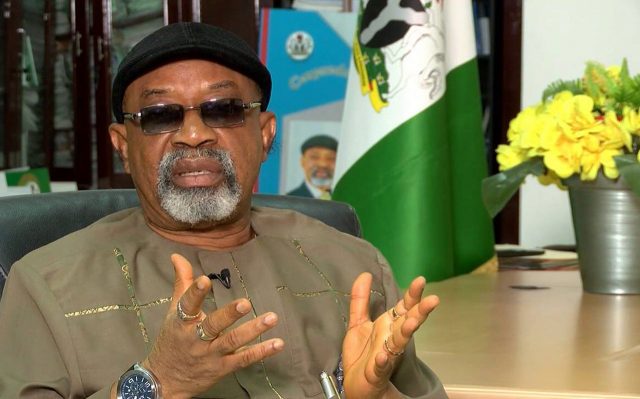The Minister of Labour and Employment, Sen. Chris Ngige, has said the Federal Government was committed to creating an enabling environment for the creation of 21 million full-time jobs and lifting 35 million people out of poverty by 2025.
Ngige said this at an Inter-Ministerial Training Workshop on Boosting Job Creation in Abuja on Friday.
The minister who was represented by the Director of Labour, Employment and Wages Department, Mrs Gloria Ogifo, said the move was in line with the National Development Plan of the Federal Government.
According to a statement issued on Friday by the Head, Press and Public Relations in the ministry, Olajide Oshundun, the minister said the three tiers of government, high net-worth individuals, and corporate organisations have been giving serious attention to job creation.
“As such, they had taken necessary actions needed to create decent jobs for the Nigerian workforce,” Ngige said.
READ ALSO: David Mark loses first son to cancer
The minister stated that the high rate of unemployment in the country could no longer be ignored.
He said the issue of unemployment was a major contributing factor to the increased insurgencies, agitations and other criminal activities manifesting in different parts of the country, adding that the state of the economy would not stop governments’ programmes for job creation.
“The ministry, in collaboration with its social partners and relevant stakeholders, had taken immediate and more proactive approaches to creating jobs, empowering the youths, and increasing productivity,” the minister said.
Ngige said the workshop would help to navigate the paths for responsive actions that would bring about job creation.
He said: “Such responsive actions that would stimulate sustainable job creation include encouraging entrepreneurship orientation from the primary level, to inculcate the culture of self-employment amongst the pupils at the early stage.
“Others are providing credit facilities at low-interest rates which would encourage youths to engage in agricultural entrepreneurship, as well as improving mechanical agricultural systems.”
Ngige also identified other responses as creating more employment opportunities in urban and rural areas through strengthening the tourism sector, providing basic infrastructure, especially power, and good road networks; among others.
- Uba Sani preaches peace at Kaduna Christmas Carol - December 23, 2024
- FG declares public holidays for Christmas, New Year celebrations - December 23, 2024
- IPMAN to Nigerians: We have enough fuel, avoid panic buying - December 23, 2024










